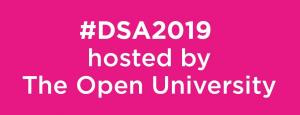You are here
- Home
- Decolonising health systems research and policy: What can it mean? How can it be done?
Decolonising health systems research and policy: What can it mean? How can it be done?
3 April 2019

This year, The Open University will host the Development Studies Association Conference, 19 - 21 June 2019. As we prepare for the event, we have invited key speakers to share details of the panels they will be holding. Today, we hear from Professor Maureen Mackintosh from The Open University. Decolonising health systems research and policy: What can it mean? How can it be done? One panel at this year’s DSA Conference aims to share some answers to those questions.
The idea grew from informal discussion and observed research gaps at last year’s Health Systems Global symposium in Liverpool. As panel convenors, Geoffrey Banda, Julius Mugwagwa and I called for presentations of work that challenges “global health” framings of low- and middle-income countries’ (LMICs’) populations, researchers, activists and professionals as recipients of in-bound knowledge and technologies, or as empirical fodder for Western theoretical framings. We were looking, not for more critiques of “global health” written from high-income contexts, but rather to share a diversity of efforts to shift health research within LMIC contexts towards a decolonised framework of research methodologies and approaches, reflecting local and bottom-up priorities.
We had in mind experiences of efforts: to embed health research, innovation and health policy initiatives in broader developmental agendas; to explore how social movements can reorient health research and innovation towards local social goals; to use methodologies that upend conventional research hierarchies and promote local agenda setting; to use action-learning to generate long-term local research engagement and subvert epidemiologically and clinically led research hierarchies. In short, to bring health research into broader efforts to decolonise development.
The response to the call was creative and enthusiastic, and we have a wonderful line-up of presentations, including papers and videos. Three broad themes stood out from the proposals, which we have grouped into the following three sessions.
Decoloniality
As one presenter expressed it, decoloniality is a political and epistemological liberation project. This group of innovative presentations thus focuses on challenges to hierarchies and the promotion of local engagement. The group includes presentations that aim to:
- disrupt coloniality of power and knowledge, based in lived experiences of frontline health workers in South Africa;
- explore the experience of Citizens’ Health Watch in Zimbabwe in challenging neo-colonial paternalistic health institutions;
- reflect on indigenous groups’ engagement with anti-microbial resistance research in Thailand and the scope for co-production of knowledge; and
- document efforts to bring community voices into disaster resilience policies in Nepal.
Technological innovation and industrial change
A second group of papers linked technological innovation and industrial change to local public health and health system needs and access. This session therefore includes papers that:
- explore the balance between colonial history and public health goals in vaccine programmes in India;
- examine how local industrial change has influenced health systems in Tanzania and Zimbabwe; and
- use health industry data to challenge the concept of a cohesive post-colonial global South.
Traditional medicine and local knowledge
A third theme focused specifically on building from traditional medicine and local knowledge. These presentations offer an innovative and inspiring window on research that is challenging dominant framings of health research and include:
- an Ethiopian decolonial critique of the aetiology of current approaches to intimate partner violence and alternatives centred on local worldviews;
- an exploration of the complexity and fragmentation of healthcare-seeking in border regions of Nigeria;
- a literature review of links between traditional and biomedical health services in Africa; and
- an analysis of the epistemological and incentives aspects of local health governance under changing global health frameworks.
As academics who have all worked or currently work at The Open University, panel convenors Geoffrey, Julius and I have been shaped by, and contributed to, the OU’s commitment to openness, and its reframing of higher education and research as open to all. The conference theme of “Opening up Development” points to the challenge of maintaining open and critical societies and inclusive economies through difficult times. Health and healthcare are central elements of inclusion and respect in all societies and cultures, yet health systems are often hierarchical, paternalistic and framed by exclusionary understandings.
Through this panel, we aim to contribute both to thinking on decolonising knowledge and also to recognise the need to address the processes and structures that produce and sustain the knowledge. The presentations will contribute to reframing and redirecting health research and policy towards local needs, bringing knowledge production in health more closely into line with broader efforts to decolonise development.
Share this page:
Contact us
To find out more about our work, or to discuss a potential project, please contact:
International Development Research Office
Faculty of Arts and Social Sciences
The Open University
Walton Hall
Milton Keynes
MK7 6AA
United Kingdom
T: +44 (0)1908 858502
E: international-development-research@open.ac.uk
.jpg)